Understanding AI Chatbots and AI Agents in Automation
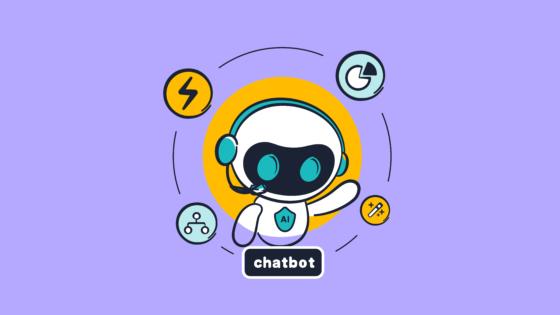
Intelligent automation and chatbots are transforming how businesses interact with customers. AI chatbots are software programs designed to simulate human-like conversations. They follow predefined workflows to answer questions, automate FAQs, and provide 24/7 support. In contrast, AI agents possess advanced capabilities like autonomous decision-making and adaptability, enabling them to handle complex tasks and deliver personalized experiences.
Their impact on intelligent automation is profound. Automating FAQs can reduce workload by up to 40%, while smarter decision-making drives 20% higher revenue. In customer service, AI chatbots streamline routine inquiries, allowing agents to focus on complex issues. AI agents, on the other hand, manage intricate workflows, ensuring seamless operations across departments. Companies like Sobot leverage these intelligent automation and chatbots technologies to enhance efficiency and improve customer satisfaction.
What Are AI Chatbots in Intelligent Automation?
Definition and Features of AI Chatbots
Conversational capabilities in customer service
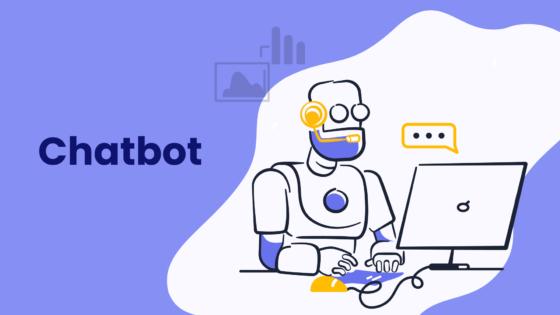
AI chatbots excel in simulating human-like conversations. They use natural language processing (NLP) to understand customer queries and provide accurate responses. These chatbots can handle multiple conversations simultaneously, ensuring quick and efficient service. For example, Sobot's AI Chatbot offers multilingual support, allowing businesses to interact with customers in their preferred language. This feature enhances accessibility and ensures a seamless user experience.
Predefined workflows and scripts
AI chatbots operate based on predefined workflows and scripts. These workflows guide the chatbot to respond appropriately to specific queries. For instance, a chatbot can provide order status updates or account details by following a set of programmed instructions. This rule-based logic ensures consistency and accuracy in responses. The table below highlights key features of AI chatbots:
| Feature/Benefit | Description |
|---|---|
| Rule-Based Logic | Operate within predefined workflows. |
| Reactive Responses | Wait for user inputs and respond accordingly. |
| Quick Task Completion | Efficiently resolve common queries like order status or account details. |
| Cost-Effective | Automating routine interactions saves time and reduces support costs. |
| Reduced Workload | Automating FAQs can cut workload by up to 40%. |
| Improved Availability | Provide round-the-clock support, ensuring seamless user experiences. |
Applications of AI Chatbots
Enhancing customer support efficiency
AI chatbots streamline customer support by handling repetitive tasks. They answer FAQs, resolve common issues, and free up human agents to focus on complex problems. Sobot's AI Chatbot improves productivity by 70%, enabling businesses to manage high volumes of inquiries efficiently.
Automating FAQs and troubleshooting
Chatbots automate FAQs and troubleshooting processes, reducing the workload on support teams. For example, they can guide users through step-by-step solutions for technical issues. This automation not only saves time but also ensures consistent and accurate assistance.
Lead generation and proactive engagement
AI chatbots play a crucial role in lead generation. They engage with website visitors, collect contact information, and qualify leads. Sobot's AI Chatbot uses proactive push messaging to boost conversions by 20%. By initiating conversations, chatbots help businesses connect with potential customers effectively.
Sobot AI Chatbot: A Game-Changer
Key features and advantages
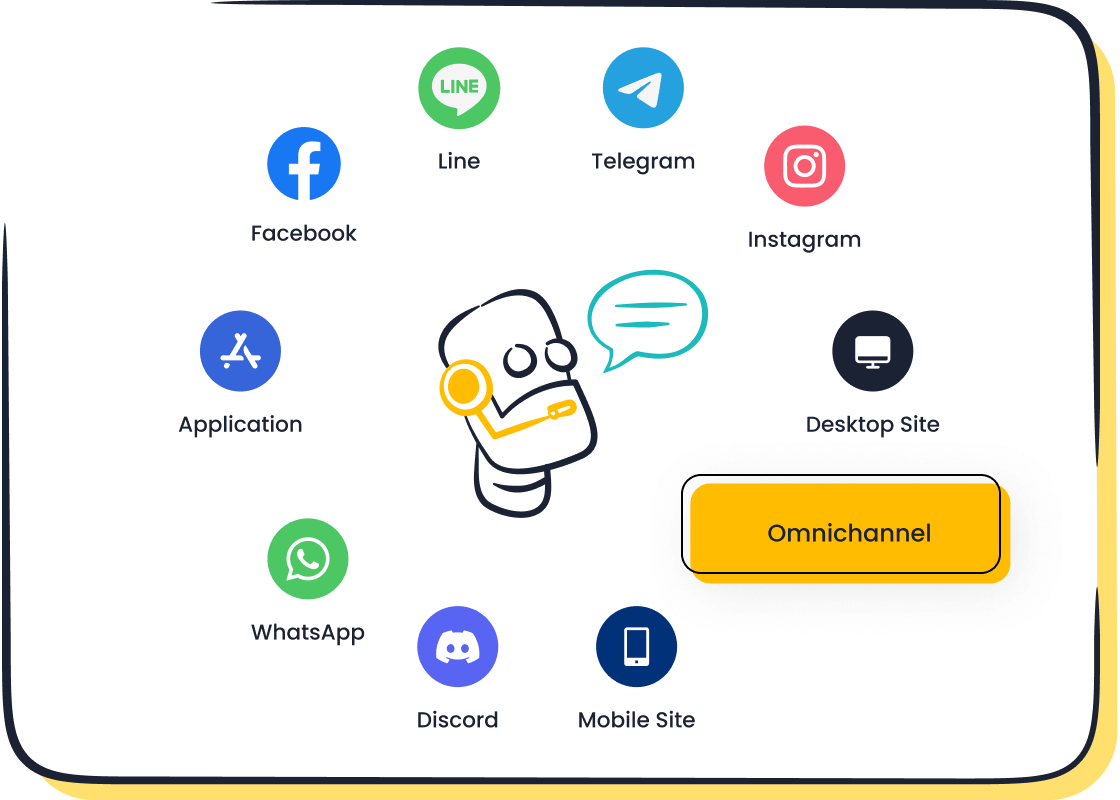
Sobot's AI Chatbot stands out with its advanced features. It operates 24/7, supports multiple languages, and requires no coding for setup. Businesses can customize the chatbot to suit their needs, making it a versatile solution. The chatbot also integrates seamlessly with platforms like WhatsApp and SMS, ensuring omnichannel support. These features enhance efficiency, cut costs, and boost conversions.
Real-world impact on customer service
The Sobot AI Chatbot has delivered impressive results for businesses. For instance, Agilent, a leader in life sciences, achieved a sixfold increase in customer service efficiency after implementing Sobot's solution. The chatbot handled routine inquiries, allowing human agents to focus on complex issues. This integration reduced operational costs by 25% and improved customer satisfaction to 95%.

What Are AI Agents and Their Role in Intelligent Automation?
Definition and Advanced Capabilities of AI Agents
Autonomous decision-making and adaptability
AI agents represent a significant leap in automation. Unlike chatbots, they make decisions independently and adapt to changing scenarios. These agents analyze data, learn from interactions, and adjust their responses without human intervention. For example, in fraud detection, AI agents process thousands of transactions in milliseconds, identifying risks faster than any manual system. This adaptability ensures they remain effective even in dynamic environments.
Context-aware and personalized interactions
AI agents excel in understanding context. They use advanced technologies like machine learning and natural language processing to deliver personalized experiences. In healthcare, for instance, AI agents analyze patient records to suggest tailored treatments. Similarly, in travel, they adjust itineraries based on real-time data, ensuring a seamless customer experience. This ability to personalize interactions makes AI agents invaluable across industries.
Applications of AI Agents
Managing complex workflows in customer support
AI agents handle intricate workflows by automating repetitive tasks and coordinating across departments. They manage high-volume call handling, authenticate identities, and resolve issues without human input. For example, Sobot's AI solutions streamline ticket resolution, ensuring faster response times and improved efficiency.
Delivering personalized customer experiences
AI agents enhance customer satisfaction by offering tailored solutions. They analyze user behavior to recommend products or services that match individual preferences. In retail, for instance, they suggest personalized offers, increasing customer engagement and loyalty.
Cross-functional task automation
AI agents optimize operations by automating tasks across various functions. In manufacturing, they monitor production quality, reducing waste and improving output by up to 25%. Their ability to integrate with multiple systems ensures seamless operations, saving time and resources.
Sobot's Vision for AI Agents
Future possibilities in intelligent automation
Sobot envisions a future where AI agents redefine automation. With advancements in machine learning and data analytics, these agents will tackle complex problems and execute multi-step processes autonomously. According to Capgemini, 82% of companies plan to integrate AI agents within the next three years. Sobot aims to lead this transformation by developing solutions that enhance efficiency and drive innovation. The AI agent market, projected to reach $47.1 billion by 2030, highlights the growing demand for these technologies. Sobot's commitment to innovation ensures businesses stay ahead in this evolving landscape.
AI Chatbots vs. AI Agents: Key Differences
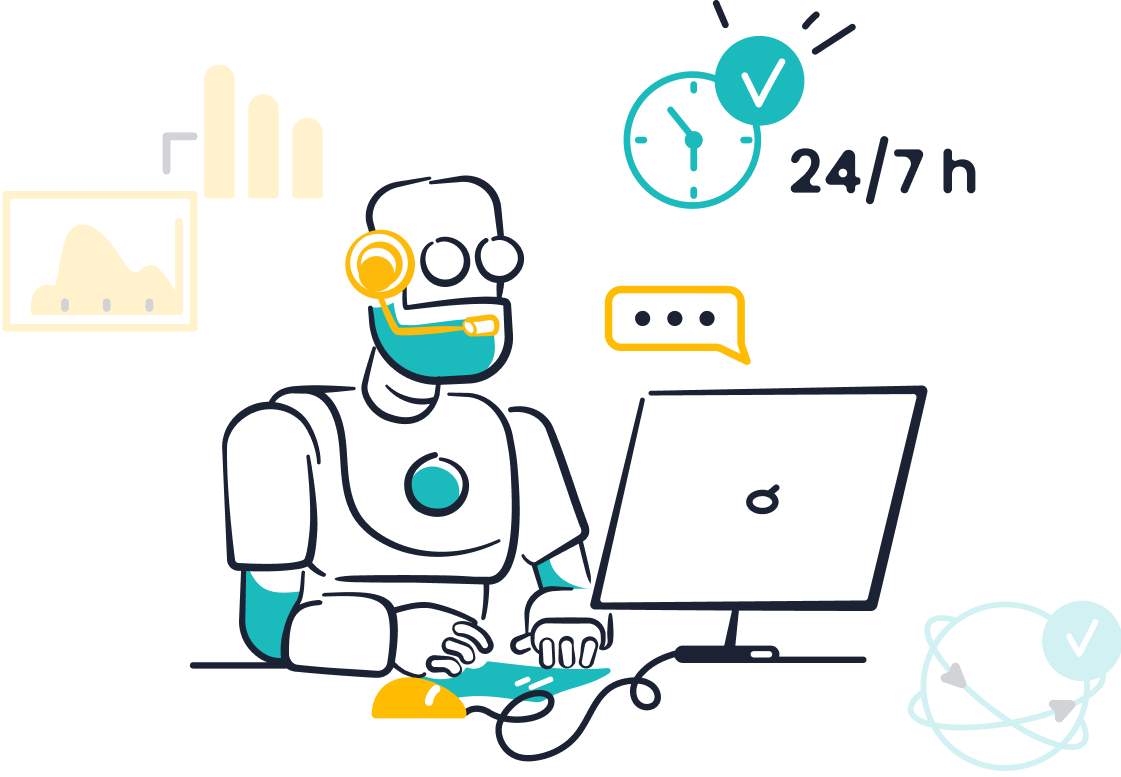
Decision-Making and Autonomy
Reactive chatbots vs. proactive agents
AI chatbots rely on predefined workflows to respond to user inputs. They wait for users to initiate conversations and provide answers based on programmed scripts. This reactive nature makes them suitable for straightforward tasks like answering FAQs or providing order updates.
In contrast, AI agents take a proactive approach. They anticipate user needs and resolve issues before they arise. For example, in customer service, an AI agent might detect a delayed shipment and notify the customer with an updated delivery timeline. This proactive behavior enhances customer satisfaction and reduces operational inefficiencies.
| Aspect | Proactive Chatbots | Reactive Chatbots |
|---|---|---|
| Customer Experience | Anticipates user needs, enhancing satisfaction | Waits for user initiation, potentially causing delays |
| Operational Efficiency | Reduces workload by preemptively resolving issues | Requires constant monitoring, leading to inefficiencies |
| Technology Requirements | Needs advanced infrastructure and predictive analytics | Relies on simpler, established technologies |
Adaptability and Learning
Static workflows vs. dynamic learning
AI chatbots operate within static workflows. They require manual updates to improve their responses or expand their capabilities. This limitation means they struggle to adapt when user queries deviate from their programmed scripts.
AI chatbots have limitations in understanding context, often failing to interpret user intent when queries deviate from their predefined scripts, and they do not learn or adapt over time.
AI agents, on the other hand, excel in adaptability. They use continuous learning algorithms to refine their decision-making and improve over time. For instance, an AI agent in e-commerce can analyze customer behavior to recommend personalized products.
AI agents utilize continuous learning algorithms and adaptive models that evolve with each interaction, allowing them to tackle unfamiliar scenarios and adjust their approach based on user feedback.
Task Complexity and Scope
Simple queries vs. multi-step processes
AI chatbots are effective for handling simple, repetitive tasks. They excel at answering common questions or guiding users through basic processes. For example, Sobot's AI Chatbot can provide instant replies to FAQs, reducing the workload on human agents. However, their effectiveness decreases significantly with complex or multi-step tasks.
AI agents, in contrast, manage intricate workflows and multi-step processes. They integrate information from various sources and adapt in real-time to new data. For example, an AI agent in healthcare can analyze patient records, schedule appointments, and recommend treatments—all within a single interaction.
| AI Chatbots | AI Agents |
|---|---|
| Limited to straightforward queries | Handles complex, multi-step workflows |
- AI chatbots are effective for specific, contained tasks such as answering common questions and guiding users through simple processes.
- AI agents can manage intricate, multi-stage processes, adapting in real-time to new information.
Cost and Implementation
Budget-friendly chatbots vs. resource-intensive agents
When considering automation, cost plays a significant role in decision-making. AI chatbots are often the more budget-friendly option. They are affordable to implement and maintain, making them ideal for businesses with limited resources. For example, Sobot's AI Chatbot offers a no-coding setup, reducing the need for specialized skills. This simplicity lowers development costs and ensures faster deployment.
AI agents, on the other hand, require more investment. Their advanced capabilities, such as autonomous decision-making and adaptability, demand robust infrastructure and skilled developers. These agents excel in handling complex workflows, but their implementation involves higher upfront costs and ongoing maintenance. Businesses must weigh these factors carefully to determine the best fit for their needs.
💡 Tip: If your business handles high volumes of simple queries, chatbots provide excellent cost efficiency. However, for intricate tasks, AI agents deliver better long-term value.
Scalability also influences cost. Chatbots handle large volumes of straightforward inquiries efficiently. However, they may struggle with complex tasks as your business grows. AI agents, with their ability to adapt and learn, offer better scalability for evolving needs. For instance, Sobot's AI solutions integrate seamlessly across platforms, ensuring smooth operations even as demands increase.
Data privacy and security are additional considerations. Chatbots, with their limited scope, are easier to secure. AI agents, due to their broader functionality, require more robust security measures. This adds to their implementation costs but ensures better protection for sensitive data.
By understanding these differences, you can make informed decisions that align with your budget and operational goals. Whether you choose chatbots or agents, Sobot provides scalable solutions tailored to your needs.
Real-World Use Cases of AI Chatbots and AI Agents
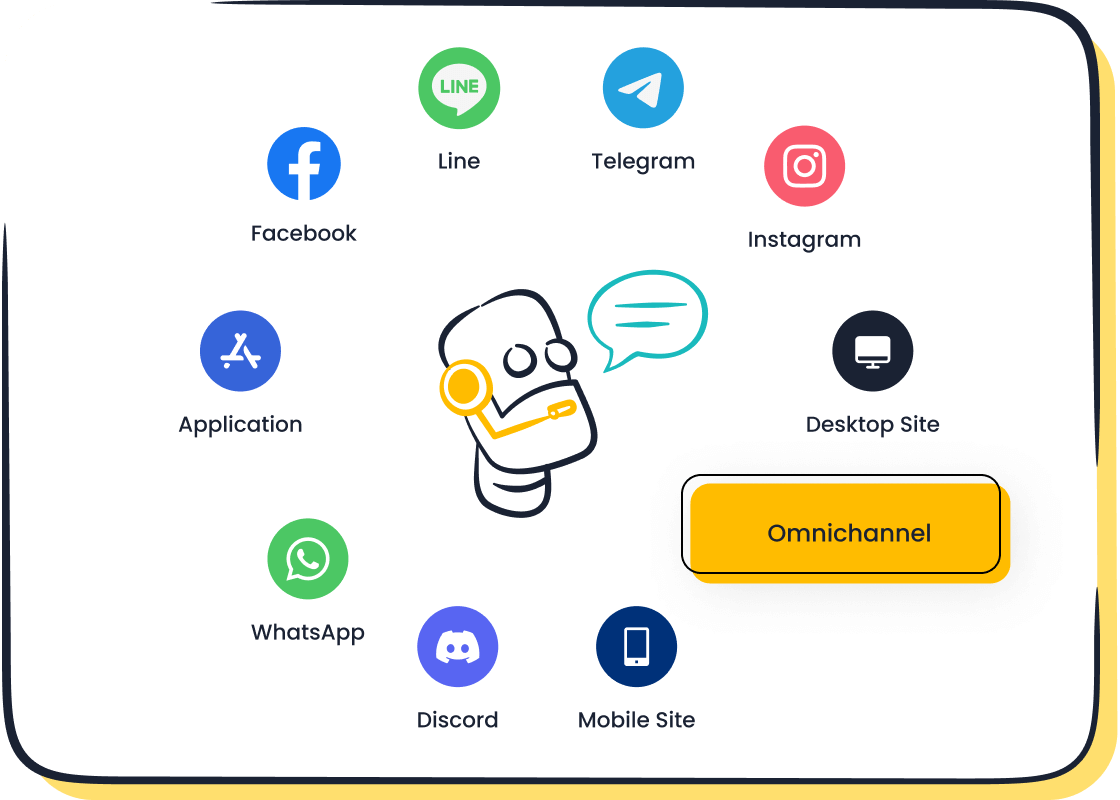
AI Chatbots in Customer Service
Handling high volumes of inquiries
AI chatbots excel at managing large volumes of customer inquiries efficiently. They automate repetitive tasks like answering FAQs, providing order updates, and resolving common issues. For instance, Sobot's AI Chatbot uses natural language understanding to handle thousands of queries simultaneously. This capability ensures faster responses, reducing wait times and improving customer satisfaction. According to recent studies, 68% of users appreciate the speed of chatbot responses, making them a preferred choice for quick problem-solving.
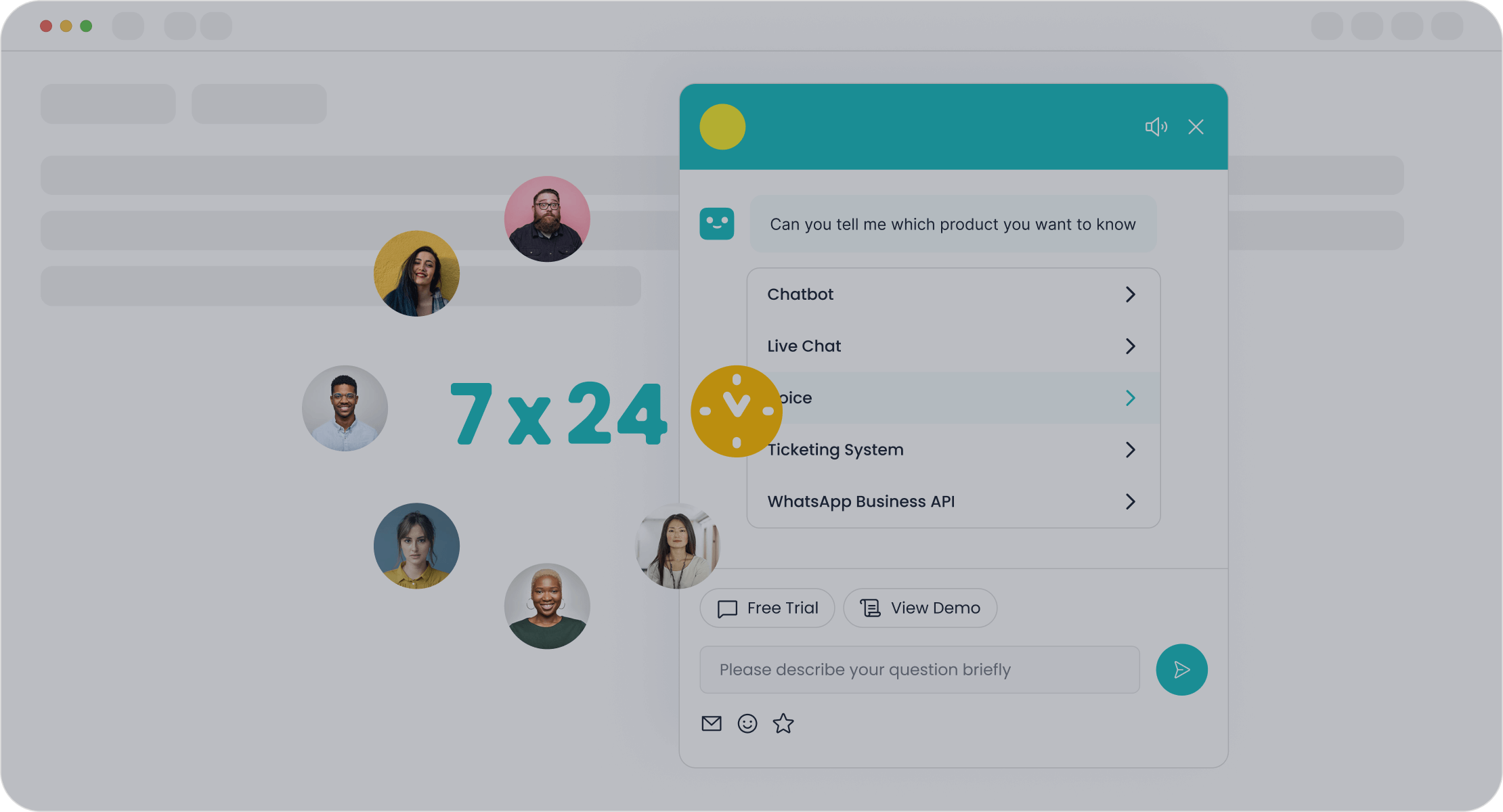
Providing 24/7 support with Sobot Chatbot
Round-the-clock availability is a key advantage of AI chatbots. Sobot's AI Chatbot operates 24/7, ensuring customers receive assistance at any time. This feature is particularly valuable for businesses with global operations, as it eliminates the need for human agents to work across time zones. By combining automation and intelligence, the chatbot provides consistent support, enhancing the overall customer experience. For example, Agilent achieved a sixfold increase in efficiency by implementing Sobot's chatbot, which handled routine inquiries while human agents focused on complex problems.
AI Agents in Intelligent Automation
Automating ticket resolution and escalations
AI agents streamline workflows by automating ticket resolution and escalations. They analyze customer issues, determine the best course of action, and resolve problems autonomously. For example, AI agents can handle return inquiries by checking eligibility, guiding customers through the process, and escalating complex cases to human agents. This process automation reduces response times and improves operational efficiency. A large e-commerce company reported 50% faster ticket resolutions after integrating AI agents into their system.
Managing complex workflows across departments
AI agents excel in managing intricate workflows that span multiple departments. They coordinate tasks, ensure seamless communication, and adapt to dynamic scenarios. For instance, in financial services, AI agents detect fraudulent transactions by analyzing data in real-time. This capability not only enhances security but also streamlines workflows across compliance and customer support teams. Sobot's AI solutions integrate advanced analytics to optimize such processes, delivering enhanced experiences for both businesses and customers.
Industry-Specific Applications
Retail and e-commerce
In retail, AI chatbots and agents personalize shopping experiences and optimize supply chains. For example, H&M's chatbot, Ada, provides tailored clothing recommendations, while Domino’s Pizza allows customers to place orders and track deliveries in real-time. These applications enhance convenience and drive customer engagement. Sobot's AI Chatbot also supports retail businesses by automating customer interactions, boosting conversions by 20%.
Healthcare and patient support
AI agents play a transformative role in healthcare. They analyze patient records, suggest treatment plans, and prioritize urgent cases. For example, Johns Hopkins Medicine uses AI to analyze radiology reports, improving diagnostic accuracy. Sobot's AI solutions can assist healthcare providers by automating appointment scheduling and patient inquiries, ensuring efficient service delivery.
Financial services and fraud detection
In financial services, AI agents detect fraud, provide real-time financial advice, and enhance customer interactions. For instance, they process refund requests by analyzing past transactions and approving eligible claims instantly. This robotic process automation reduces workload and improves customer trust. Sobot's AI-powered tools help financial institutions streamline workflows and deliver secure, efficient services.
Choosing Between AI Chatbots and AI Agents for Your Business
Assessing Business Needs
Task complexity and customer interaction volume
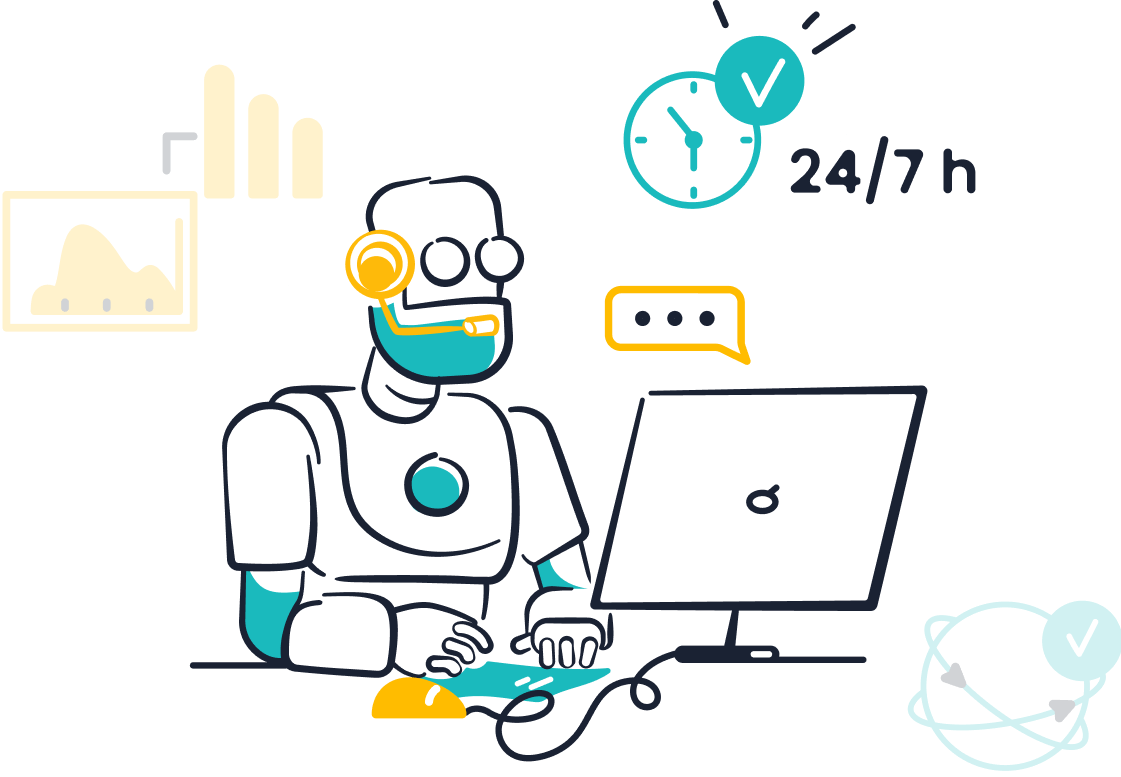
Understanding your business needs is the first step in choosing between AI chatbots and AI agents. If your operations involve handling a high volume of simple, repetitive queries, AI chatbots are an excellent choice. They efficiently manage tasks like answering FAQs or providing order updates, reducing the workload on your team. For instance, Sobot's AI Chatbot can handle thousands of inquiries simultaneously, ensuring quick responses and improved customer satisfaction.
However, if your business requires managing complex workflows or delivering personalized customer experiences, AI agents are more suitable. They adapt to dynamic scenarios and handle multi-step processes autonomously. For example, in financial services, AI agents analyze transaction data in real-time to detect fraud, ensuring seamless operations across departments.
Budget and resource considerations
Budget plays a critical role in your decision. AI chatbots are cost-effective and easy to implement, making them ideal for businesses with limited resources. Sobot's AI Chatbot, for example, offers a no-coding setup, reducing development costs and ensuring faster deployment.
AI agents, while more resource-intensive, provide long-term value by automating complex tasks and improving operational efficiency. Businesses must evaluate their technological infrastructure and anticipate potential challenges before investing in AI agents. A clear implementation plan, including timelines and responsibilities, ensures a smooth transition to intelligent automation.
Evaluating Long-Term Goals
Scalability and future-proofing with Sobot solutions
Scalability is essential for businesses aiming to grow. AI chatbots handle increasing volumes of simple queries efficiently, making them a scalable solution for customer support. However, as your business evolves, the need for more advanced automation may arise. AI agents, with their adaptability and learning capabilities, offer better scalability for complex tasks.
The global AI market is projected to contribute $15.7 trillion to the economy by 2030, emphasizing the importance of future-proofing your operations. Sobot's AI solutions, designed for scalability, ensure your business stays competitive in a rapidly changing digital environment. By integrating advanced technologies, Sobot helps businesses adapt to evolving customer needs and market trends.
Balancing Cost and ROI
Short-term vs. long-term benefits of automation
When evaluating automation, consider both short-term benefits and long-term returns. AI chatbots provide immediate cost savings by automating routine tasks, reducing processing times, and lowering labor costs. For example, Sobot's AI Chatbot improves productivity by 70%, delivering quick efficiency gains.
AI agents, on the other hand, offer strategic advantages for sustained profitability. They enhance product quality, improve customer satisfaction, and optimize inventory management. While their implementation involves higher upfront costs, the long-term benefits outweigh the initial investment. Businesses must weigh these factors to determine the best fit for their goals.
| Short-Term Benefits | Long-Term Returns |
|---|---|
| Immediate cost savings | Enhanced product quality |
| Efficiency gains | Improved customer satisfaction |
| Reduction in processing time | Strategic advantages for sustained profitability |
| Labor cost savings | Inventory optimization |
| Faster production | Future-proofing processes |
By balancing cost and ROI, you can make informed decisions that align with your business strategy. Whether you choose chatbots or agents, Sobot provides tailored solutions to meet your needs.
AI chatbots and AI agents serve distinct roles in intelligent automation. Chatbots excel at handling simple, repetitive tasks like answering FAQs, while agents manage complex workflows and deliver personalized experiences. Both technologies enhance efficiency and improve customer satisfaction when applied strategically.
Choosing the right solution depends on your business needs. AI chatbots offer cost-effective automation for high volumes of straightforward queries. AI agents, with their adaptability and decision-making capabilities, provide long-term value for intricate processes.
Sobot ensures your technology aligns with your goals. Businesses using Sobot solutions have seen remarkable improvements:
| Metric | Improvement Rate |
|---|---|
| Sign-off Rate | 35% |
| COD Collection Rate | 40% |
| Agent Efficiency | 30% |
| Customer Satisfaction (CSAT) | 97% |
By leveraging Sobot’s AI-powered tools, you can achieve operational excellence and drive customer satisfaction.
FAQ
What is the difference between AI chatbots and AI agents?
AI chatbots follow predefined workflows to handle simple tasks like answering FAQs. AI agents, however, adapt to dynamic situations and make decisions autonomously. For example, Sobot's AI Chatbot automates routine queries, while AI agents manage complex workflows like fraud detection or cross-departmental tasks.
Can AI chatbots work across multiple platforms?
Yes, AI chatbots like Sobot's support omnichannel communication. They integrate with platforms such as WhatsApp, SMS, and websites. This ensures seamless customer interactions, regardless of the channel your customers prefer.
How do AI solutions improve customer service efficiency?
AI solutions automate repetitive tasks, reducing response times and freeing up human agents for complex issues. For instance, Sobot's AI Chatbot improves productivity by 70% and operates 24/7, ensuring customers receive timely assistance.
Are AI chatbots expensive to implement?
AI chatbots are cost-effective. Sobot's AI Chatbot, for example, requires no coding for setup, reducing development costs. It also saves up to 50% on agent expenses by automating routine queries, making it an affordable solution for businesses of all sizes.
How secure are AI-powered customer service tools?
AI-powered tools prioritize data security. Sobot ensures robust measures to protect sensitive customer information. Its solutions comply with industry standards, offering businesses peace of mind while enhancing customer interactions.
See Also
Tips for Selecting Top Chatbot Solutions for Your Needs
Simple Steps to Integrate Chatbots on Your Website
Overview of AI Tools for Effective Call Center Operations
Enhancing Customer Experience in E-commerce with Chatbots
Strategies for Efficiently Overseeing Live Chat Support Teams